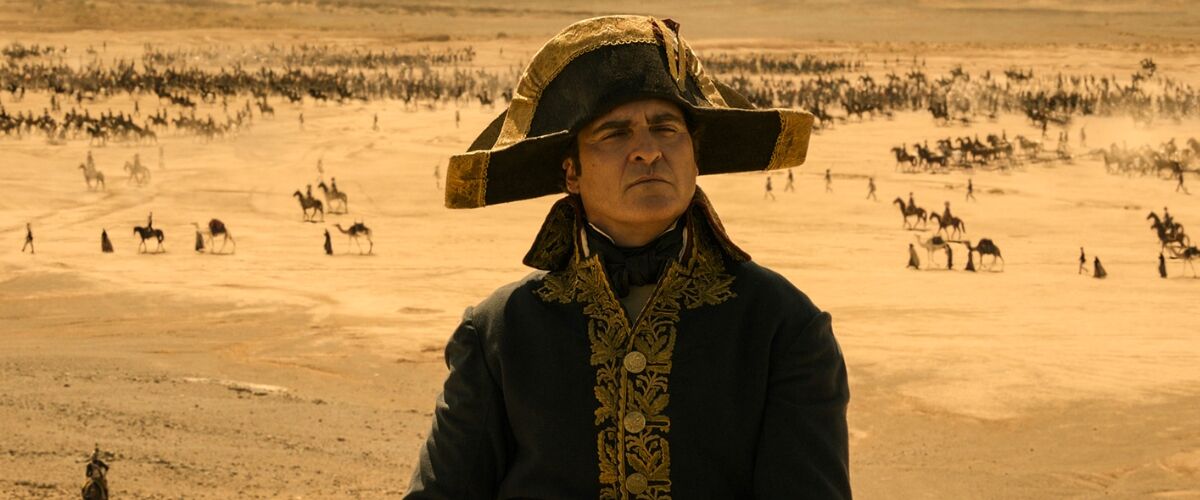Hollywood’s fascination with biopics and historical dramas has never been more evident, with 2023’s success of Oppenheimer and Killers of the Flower Moon, and the upcoming Ferrari and Maestro. Famed director Ridley Scott’s Napoleon stands out in the tapestry of historical films as a daring and divisive work of art, vividly capturing the essence of one of history’s most enigmatic figures, while also garnering criticism for the portrayal of his character.
This Apple TV+ film, steeped in the tumultuous saga of the French emperor, invites audiences to gaze through a lens that is as magnificently cinematic as it is daringly unconventional, even as Scott has been criticised for the film’s historical inaccuracies, most notably by French historians who, all things considered, probably know the legacy of one of their most famed leaders in history much better.
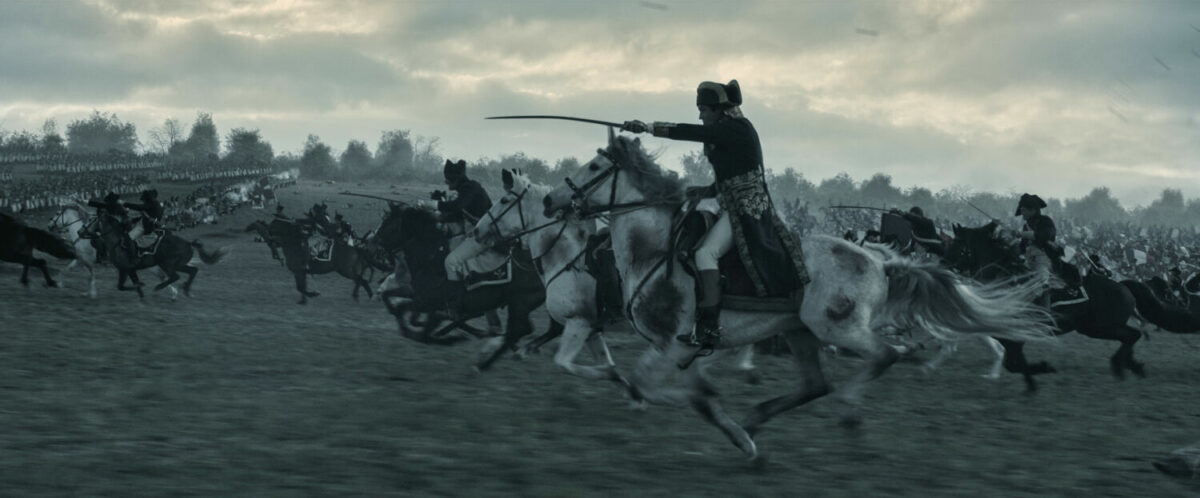
Known for his cinematic prowess in films like Hannibal and Alien, and less so for his historical projects including Kingdom of Heaven (2005) and Exodus: Gods and Kings (2014), Ridley Scott ventures into the intricate life of the famed French ruler, Napoleon Bonaparte (1769 – 1821), portrayed by the ever-versatile Joaquin Phoenix. This historical biopic, spanning the tumultuous adult life of Napoleon Bonaparte, is a grand canvas painted with the complex hues of his character.
The film commences with an engaging depiction of Marie Antoinette’s execution (1793), immediately immersing viewers in the tumultuous era of the French Revolution (1789 – 1799). Scott’s choice to open with such a historical moment sets the tone for the film, one that intertwines brutal realities of historical events with personal drama.
Napoleon‘s pacing is sporadic, with David Scarpa’s (All the Money in the World, Gladiator 2) script skipping ahead and time-jumping from one significant event to another with no warning and a casualness that sometimes leaves the audience scrambling to keep up. This approach results in a narrative that, while grand, lacks cohesiveness and emotional depth.
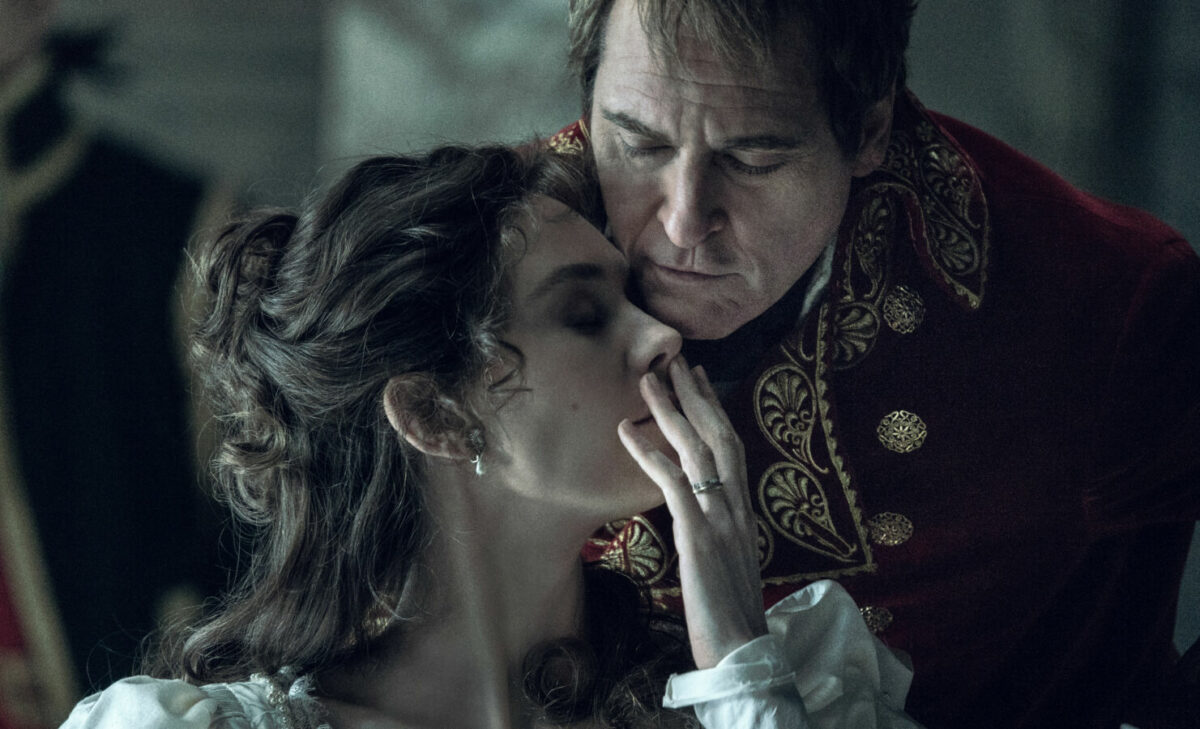
Furthermore, the film’s portrayal of Napoleon’s personal life, particularly his sexual encounters, has raised eyebrows. These scenes, meant to add layers to his character, instead come across as awkward and reduce the gravitas of the figure. When the audience reaches the act that highlights Napoleon’s downfall both in war and romance, it might have been more tragic if the audience were more emotionally connected to the characters. These shortcomings detract from the film’s otherwise immersive historical experience.
Another point of contention is the film’s length. At over two-and-a-half hours, Napoleon feels overextended. While it is understandable that Scott aimed to cover a significant portion of Napoleon’s life, the film could have benefitted from tighter editing that would have made for a more engaging and coherent narrative. The film could also have benefitted from more vibrant colour grading, as the scenes sometimes appear dull, lacking the saturation and contrast needed to fully bring the historical era to life.
Despite its flaws, the heart of Napoleon lies in Joaquin Phoenix’s masterful, nuanced portrayal of the titular character. Phoenix, who has consistently shown his ability to delve deep into complex roles, from Walk the Line to his Oscar-winning turn in Joker, dives into the role of Napoleon with a fervour that captures the essence of the storied general.
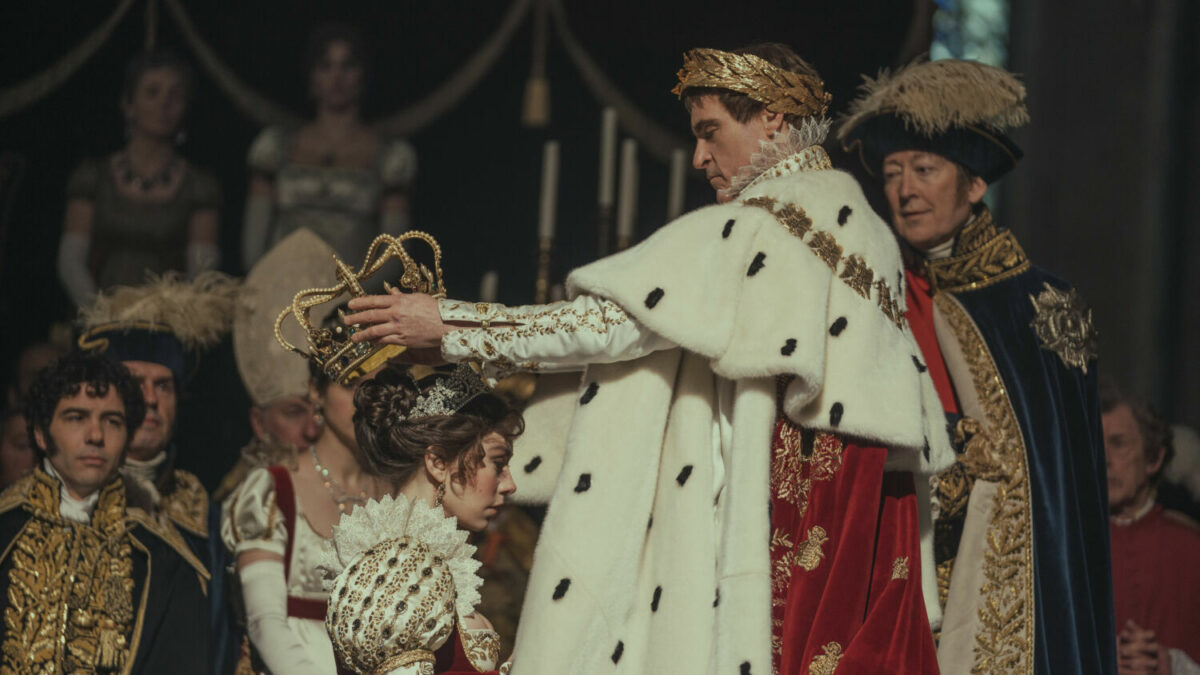
Phoenix brings to life a man who was as strategically brilliant as he was personally insecure. This humanisation of Napoleon offers a fresh perspective, moving away from the traditional grandeur associated with historical figures and instead highlighting his vulnerabilities and insecurities.
Complementing Phoenix is Vanessa Kirby as Napoleon’s first wife, Empress Joséphine de Beauharnais (1763 – 1814), whose performance is both commanding and dynamic. She paints a vivid picture of their tumultuous relationship, highlighting the complexities of Napoleon’s beloved. The chemistry between Phoenix and Kirby is palpable, adding a fiery spark to the film.
Unsurprisingly, where Napoleon truly excels is in its battle scenes. Ridley Scott, a veteran in depicting large-scale conflicts, outdoes himself with the portrayal of six Napoleonic battles, ranging from the victories at Austerlitz and Borodino to his infamous and eventual surrender at Waterloo, are not only grand in scale but also rich in detail, offering a visual treat to the audience. The Battle of Austerlitz stands out, showcasing Napoleon’s strategic brilliance and ruthlessness, all wrapped up in Scott’s mastery of visual storytelling.

Dariusz Wolski’s cinematography is another feather in the film’s cap. His camera work is not just visually stunning, but also emotionally resonant. The depth of field and the meticulous attention to detail in these scenes are nothing short of remarkable, contributing significantly to the epic feel of the movie.
The film’s conclusion, however, is where it leaves its most indelible mark. After taking the audience on a whirlwind tour of Napoleon’s life, the film ends with a stark reminder of the death toll from his campaigns. This sombre note is not just a reflection on the character of Napoleon but also a commentary on the cost of war and the price of power.
All in all, Ridley Scott’s Napoleon is a film of contrasts – a cinematic spectacle that dazzles in its portrayal of battles and the larger-than-life figure of Napoleon Bonaparte, yet falters in its emotional resonance and narrative coherence. It may not go down as Scott’s most acclaimed work, stumbling in its pacing and emotional depth, leaving the narrative feeling disjointed and the characters underdeveloped.
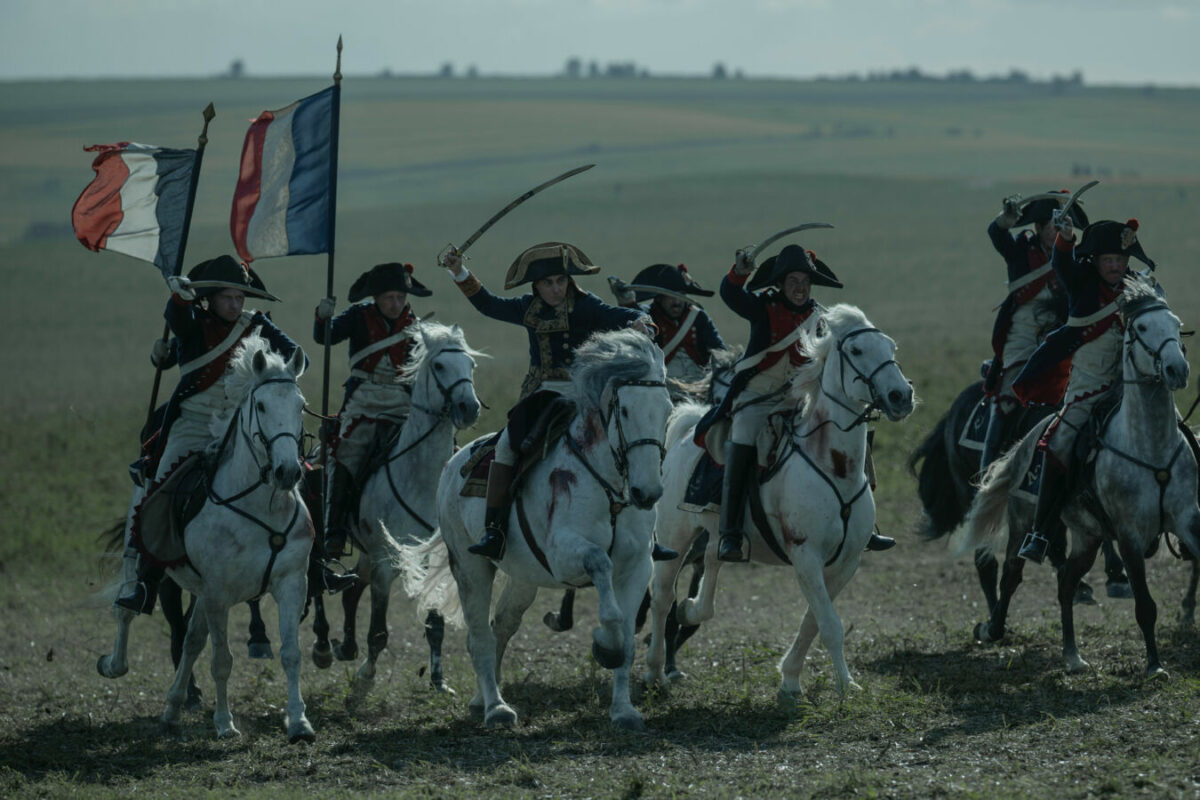
This Apple TV+ release, marked by stunning visuals yet marred by narrative inconsistencies, stands as a reminder that even the most visually arresting films can falter in fully realising their ambitious visions. Napoleon ultimately serves as a complex cinematic experience, leaving audiences with a sense of awe intertwined with a longing for what might have been.
Napoleon is in cinemas now, and will stream on Apple TV+ at a later date.
GEEK REVIEW SCORE
Summary
Ridley Scott’s Napoleon is a cinematic spectacle that is both impressive and unsatisfying, a testament to the complexities of adapting such a colossal historical figure to the screen.
Overall
6.4/10-
Story - 6/10
6/10
-
Direction - 6/10
6/10
-
Characterisation - 7/10
7/10
-
Geek Satisfaction - 6.5/10
6.5/10

